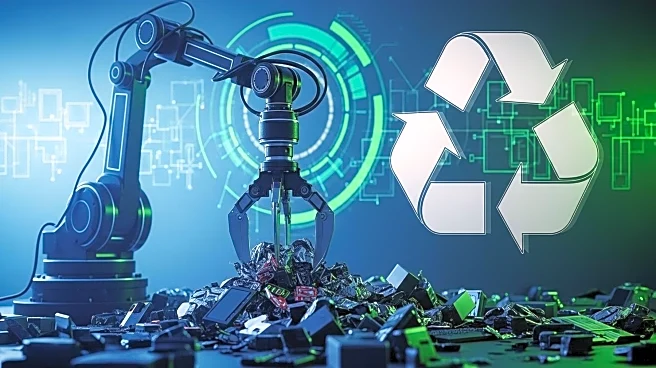What's Happening?
Researchers at the Danish Technological Institute are developing an AI-driven robotic system to address the global e-waste problem. This system automates the refurbishment of laptops, reducing e-waste and creating a revenue stream. The robot is equipped with a robotic arm, toolbox, and camera, trained to replace laptop screens—a task that is typically manual and time-consuming. The initiative aims to expand the robot's capabilities to handle more laptop models and brands, leveraging AI and visual recognition technology.
Why It's Important?
E-waste represents a significant environmental challenge, with a large portion of discarded electronics not being properly recycled. The Danish initiative could transform the tech refurbishment industry by automating labor-intensive tasks, thus reducing waste and enhancing efficiency. This approach not only addresses environmental concerns but also taps into the economic potential of e-waste, which contains valuable materials like gold, copper, and rare earth metals. By improving recycling processes, the initiative could lead to more sustainable practices and economic opportunities in the tech sector.
What's Next?
The success of this robotic system could encourage other countries and companies to invest in similar technologies, potentially leading to a global shift in e-waste management. As the system's capabilities expand, it may become a model for integrating AI and robotics in recycling operations. The initiative could also drive policy changes and increased funding for e-waste projects, promoting innovation and collaboration in the field.
Beyond the Headlines
The development of robotic systems for e-waste recycling highlights the intersection of technology and environmental sustainability. It raises ethical considerations about the role of automation in reducing human labor and the need for responsible management of electronic waste. The initiative also underscores the importance of international cooperation in addressing global environmental challenges.









